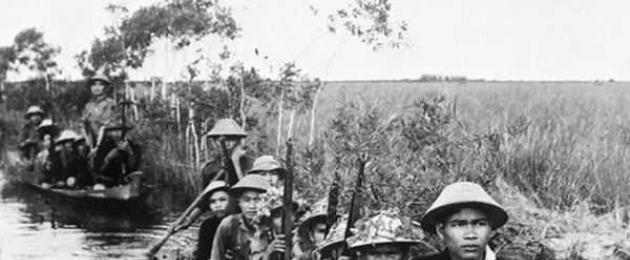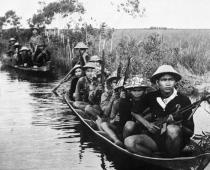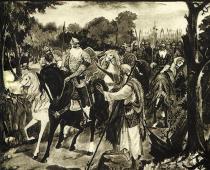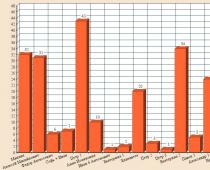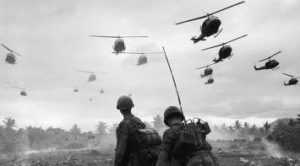
What is the cause of the US war in Vietnam, the results and consequences
The subject of the Vietnam War cannot be covered in one article. Therefore, a number of articles will be written about this period in. This material will examine the background of the conflict, the causes of the Vietnam War and its results. The US war in Vietnam was the Second Indochina War. The First Indochina War was a liberation war for Vietnam and was fought against France. It ran from 1946 to 1954. By the way, the United States also took part in that war, which is much less often remembered. In the United States, the Vietnam War is treated as a “dark spot” in its history, and for the Vietnamese, it became a tragic and heroic stage on the way to their sovereignty. For Vietnam, this war was both a struggle against foreign occupation and a civil confrontation between various political forces.
Vietnam was colonized by France in the second half of the 19th. A few decades later, the national identity of the Vietnamese led to the creation of the League for Independence in 1941. The organization was called the Viet Minh and united under its wing all those who were dissatisfied with the power of the French in Vietnam.
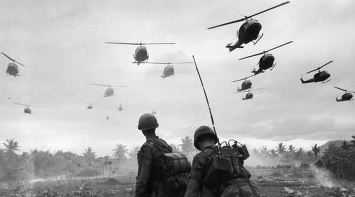
The Viet Minh organization was created in China and its main figures were communist. They were led by Ho Chi Minh. During World War II, Ho Chi Minh collaborated with the Americans against Japan. When Japan capitulated, Ho Chi Minh supporters took control of northern Vietnam, with Hanoi as its capital. They proclaimed the establishment of the Democratic Republic of Vietnam.
France brought an expeditionary force into the country in December 1946. Thus began the First Indochina War. But the French could not cope with the partisans, and starting in 1950, the United States began to help them. The main reason for their participation in this war, the reason for their intervention in this war was the importance of Vietnam in the strategic plan. It was a region that covered the Philippines and Japan from the southwest. And since the French had become allies of the United States by that time, they decided that it was better for them to control the territory of Vietnam.
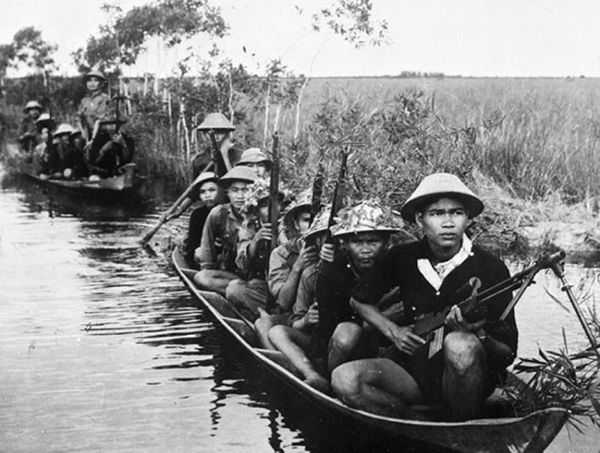
Gradually, by 1954, the United States already bore almost all the costs of this war. Soon the French were defeated at Dien Bien Phu and the United States, along with the allies, were on the verge of defeat. Richard Nixon, then Vice President of the United States, even spoke out in favor of nuclear bombing. But this was avoided and in July 1954 an agreement was concluded in Geneva on the temporary division of the territory of Vietnam along the 17th parallel. A demilitarized zone passed through it. This is how Severny and appeared on the map. The North controlled the Viet Minh, while the South was given independence by the French.
Thus ended the First Indochinese War, but it was only a prelude to more carnage. After communist power was established in China, the US leadership decided to completely replace the French presence with its own. To do this, they placed their puppet Ngo Dinh Diem in the southern part. With US support, he proclaimed himself President of the Republic of Vietnam.
Ngo Dinh Diem turned out to be one of the worst rulers in the history of Vietnam. He appointed relatives to leadership positions in the country. Corruption and tyranny reigned in South Vietnam. The people hated this government, but all opponents of the regime were killed and rotted in prisons. The US didn't like it, but Ngo Dinh Diem was "their scoundrel". As a result of such rule, the influence of North Vietnam and the ideas of communism grew. The number of partisans also increased. However, the US leadership saw the reason not in this, but in the intrigues of the USSR and communist China. Measures to tighten the government did not give the desired result.
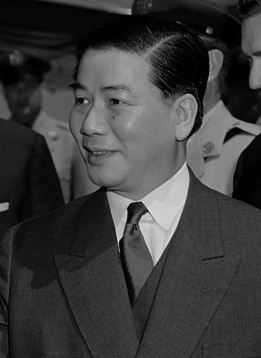
By 1960, all partisans and underground organizations in the southern part of the country organized the National Liberation Front. In Western countries, he was dubbed the Viet Cong. In 1961, the first regular units of the US Army arrived in Vietnam. These were helicopter companies. The reason for this was the complete incapacity of the leadership of South Vietnam in the fight against the partisans. In addition, the reason for these actions was also cited as a response to North Vietnamese assistance to the guerrillas. Meanwhile, the North Vietnamese authorities gradually began to lay the so-called supply route for the guerrillas in South Vietnam. Despite the much worse equipment than the US soldiers, the partisans successfully used various ones and carried out sabotage activities.
Another reason was that the US leadership by sending troops demonstrated their determination to the Soviet Union in the destruction of communism in Indochina. The American authorities could not lose South Vietnam, because this led to the loss of Thailand, Cambodia, Laos. And this put Australia at risk. In November 1963, the secret services organized a coup, as a result of which Diem and his brother (the head of the secret police) were killed. The reason for this is clear - they completely discredited themselves in the fight against the underground.
Subsequently, a series of coups followed, during which the partisans managed to further expand the territory under their control. American President Lyndon Johnson, who came to power after Kennedy's assassination, continued to send troops to Vietnam. By 1964, their number there was increased to 23 thousand.
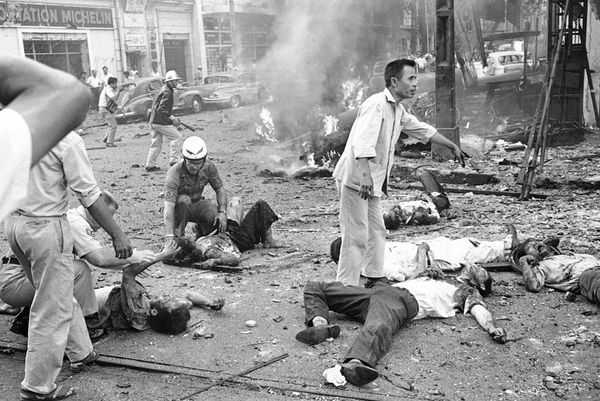
In early August 1964, as a result of the provocative actions of the destroyers Turner Joy and Maddox in the Gulf of Tonkin, they were fired upon by the military of North Vietnam. A few days later, a report was received of a second shelling of Maddox, which was later denied by the ship's crew. But intelligence reported an interception of a message, where the Vietnamese allegedly recognized the attack on the ship.
The secrets of the Vietnam War were hidden by the American leadership for a long time. As it turned out in our days, the NSA officers made a mistake when deciphering the message. But the NSA leadership, aware of the error, presented the data in a favorable light for themselves. And that was the reason for the war.
As a result, the military invasion was approved by the US Congress. They adopted the Tonkin resolution and started with the US or Second Indochinese.
Causes of the Vietnam War
It can be unequivocally said that the war was unleashed by American politicians. At one time, the inhabitants of the USSR were called the imperialist habits of the United States and the desire to subjugate the planet as the cause of the war. In general, given the worldview of the Anglo-Saxon elite of this country, this version is not far from the truth. But there were also more prosaic reasons.
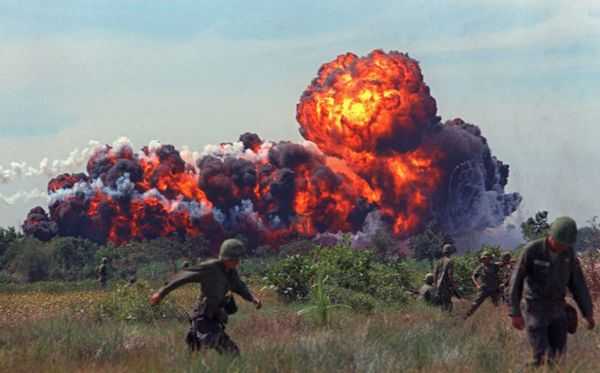
In the United States, they were very afraid of the spread of the communist threat and the complete loss of Vietnam. American strategists wanted to completely surround the communist bloc of countries with a ring of their allies. Such actions have been taken in Western Europe, Pakistan, Japan, South Korea and a number of other countries. Nothing worked out with Vietnam and this became the reason for the military solution to the problem.
The second weighty reason was the desire to enrich corporations that sell weapons and ammunition. As you know, in the United States, economic and political elites are very interconnected. And the corporate lobby has a very strong influence on political decisions.
And how did they describe the cause of the war to ordinary Americans? The need to support democracy, of course. Sounds familiar, doesn't it? In fact, for US politicians, communist Vietnam was like a "splinter in one place." And the owners of military enterprises wanted to increase their fortunes on deaths. The latter, by the way, did not need a victory. They needed a massacre that would last as long as possible.
- In contact with 0
- Google+ 0
- OK 0
- Facebook 0

